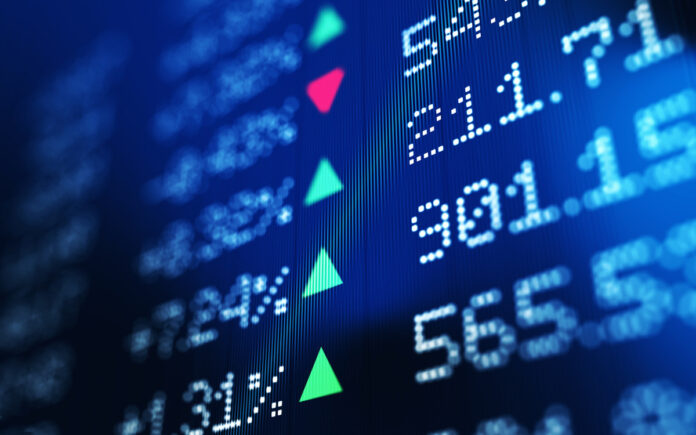The Nigerian Exchange (NGX) Ltd., has highlighted five areas which are: building on digital transformation, listings and delistings, technology, partnerships, and sustainability, to grow the market significantly in 2022.
The Chief Executive Officer, NGX, Mr Temi Popoola, made the submission at the virtual annual 2021 Market Recap and 2022 Outlook in collaboration with Renaissance Capital (RenCap) on Thursday in Lagos.
Popoola said that 2021 was a positive year for NGX suite of indices which ended the year with positive returns except for three indices which ended in the negative.
“2021 was a generally positive year for the NGX’s suite of indices as all but three of the indices ended the year with positive returns.
“NGX’s flagship index, NGX All Share Index returned 6.1 per cent driven by recovering corporate earnings and improved investor sentiments. The Equity Capitalisation rose by 5.89 per cent or N1.24 trillion during the year.
The NGX Oil and Gas Index was the best performing index with a return of 52.52 per cent driven by recovery in the global oil prices and stronger performances from oil and gas companies.
“This was closely followed by the NGX Growth Board Index which returned 28.0 per cent,” he said.
The NGX boss also said: “In the fixed income market, capitalisation grew by 12.81 per cent from N17.50 trillion in 2020 to 19.74 trillion in 2021 driven majorly by Federal Government of Nigeria Bond issuances.
“The year 2021 saw the groundbreaking listing of BUA Cement’s N115 billion bond, the largest corporate bond. We also saw the listing of LFZC Funding SPV’s N10 billion, the longest dated corporate bond.
“We also saw significant uptick in the value of turnover in the fixed income as turnover grew from N1.37 billion in 2020 to N3.52 billion in 2021. This represented an increase of 158.19 per cent in the value traded.
“This improvement could be attributed to investors taking advantage of rising rates in the fixed income market.
“NGX also made significant progress in its efforts on the introduction of Exchange Traded Derivatives. We witnessed the official launch of NG Clearing, Nigeria’s premier Central Clearing Counter Party (CCP).
The Exchange also registered seven contracts with the Securities and Exchange Commission (SEC) ahead of the launch of Exchange Traded Derivatives,” Popoola said.
He also identified some ground breaking achievements for the year include: in customer experience, to drive development and improvement of digital experience for our stakeholders, NGX launched the maiden edition of the Digital only version of the 2021 NGX annual Factbook (X-Factbook), and released an enhanced version of its X-Mobile App.
“Listings: In the equities space, NGX listed Bricklinks Africa, NGX Group and Ronchess Global Resources Plc by introduction on The Exchange; while the fixed income market saw corporate bond issuances by BUA Cement Plc (N115 billion); CardinalStone (N5 billion); Nova Merchant Bank (N10 billion); Coronation Merchant Bank (N25 billion) among others.
“Securities Lending: NGX grew the total value of securities borrowed/lent in 2021 to N513.10 million up from N95.18 million in 2020 and N340 thousand in 2019.
“Market Making: received approval on amendments to the NGX Market Making Rules and relaunched the NGX Market Making Program across the various listed asset classes.
“In upholding its key pillars of sustainability and peer-learning platforms, NGX recorded the following achievements, gender gap assessment report: NGX in collaboration with IFC launched the first-of-its-kind gender gap assessment report and a 2-year Peer Learning Platform to support listed companies in their quest to improve the gender performance.
On his part, the Director-General, Budget Office of the Federation, Mr Ben Akabueze said that the nations domestic growth drivers for 2022 would be majorly driven by higher investments and expenditure.
He said in terms of expenditure, government had maintained an expensive physical stance given the resource constraints that the country faced.
“In 2021, Nigeria launches the Nigerian Development Plan, 2021 to 2025 which has an investment which has a projected size of N349 trillion and the private sector is expected to chip in N300 trillion over the planned period,” he said.
Akabueze also explained that Nigeria needed significant private sector participation in the the infrastructure sector.
Also, the Global Chief Economist/Head of Macro-strategy, RenCap, Mr Charles Robertson hinted that Nigeria’s Gross Domestic Products would grow by 2.8 per cent in 2022, while it’s CPI will average 12 per cent year-on-year, adding that oil alone would not make Nigeria gulf-rich.




